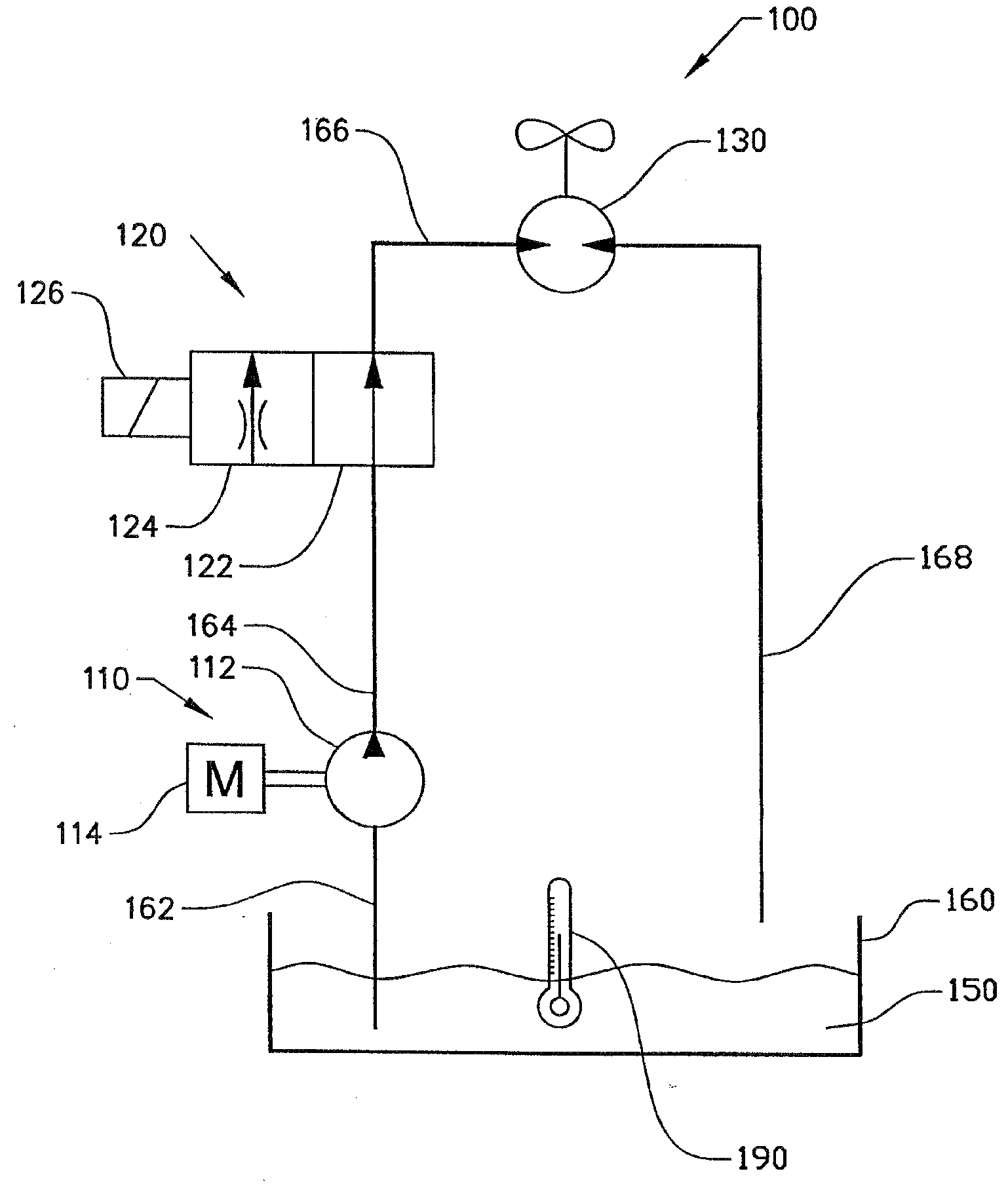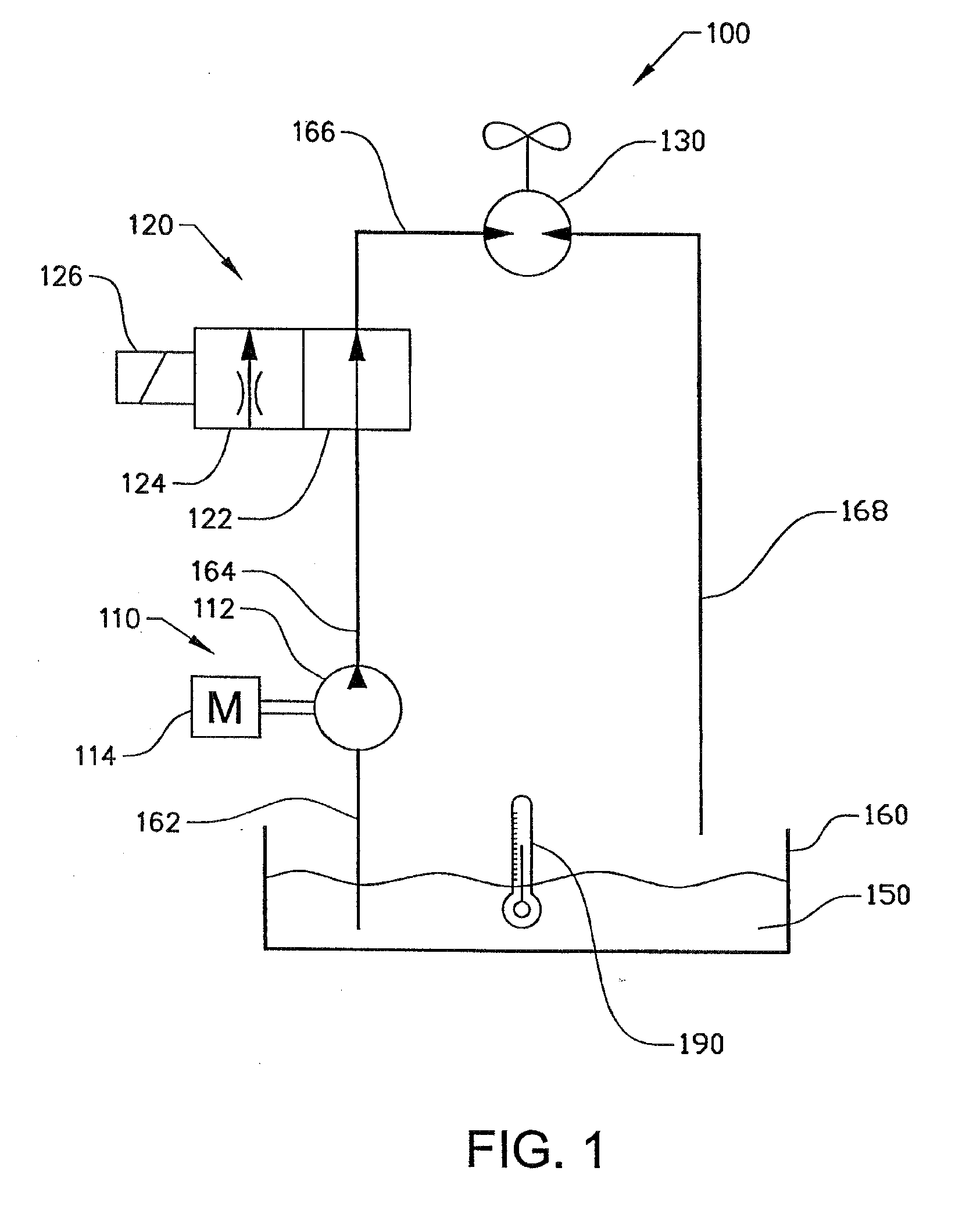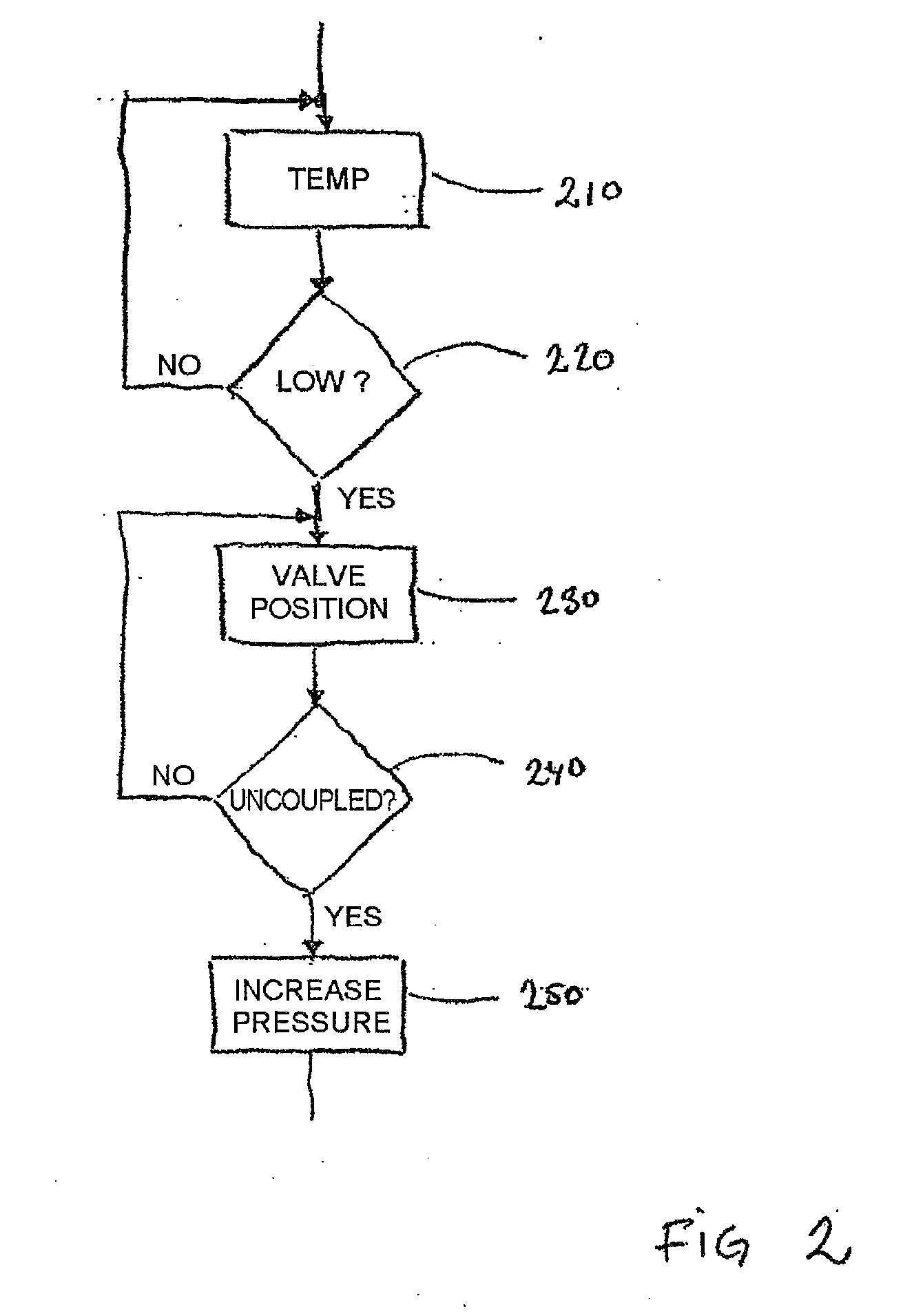System and method for controlling viscosity of a fluid and a working vehicle containing such a system
a technology of viscosity control and fluid, which is applied in the direction of fluid couplings, instruments, couplings, etc., can solve the problems of fluid thick and sluggish, increased risk of leakage of seals, and increased risk of oil friction-reducing films, etc., to achieve the effect of increasing pressur
- Summary
- Abstract
- Description
- Claims
- Application Information
AI Technical Summary
Benefits of technology
Problems solved by technology
Method used
Image
Examples
Embodiment Construction
[0043] Machinery with hydraulic systems requires a certain viscosity of the hydraulic fluid in order to function satisfactorily. The temperature is the single most important factor affecting the viscosity of the hydraulic fluid. The viscosity-controlling method according to the invention is thus designed so that the hydraulic fluid can reach an operating temperature which results in the hydraulic fluid having a desired viscosity. Problems arise in most cases with machinery operating in cold climates, for example snow-clearers. It may also unfortunately happen that the operating hydraulics are seldom used or used only sporadically, which has the result that there is no self-heating of the hydraulic fluid in the hydraulic system. Self heating of the hydraulic fluid to a large extent arises through a pressure drop, which results in a power drain, on the one hand as mechanical work and on the other hand as heat. The part resulting in heat, which affords self-heating, are dissipations in...
PUM
 Login to View More
Login to View More Abstract
Description
Claims
Application Information
 Login to View More
Login to View More - R&D
- Intellectual Property
- Life Sciences
- Materials
- Tech Scout
- Unparalleled Data Quality
- Higher Quality Content
- 60% Fewer Hallucinations
Browse by: Latest US Patents, China's latest patents, Technical Efficacy Thesaurus, Application Domain, Technology Topic, Popular Technical Reports.
© 2025 PatSnap. All rights reserved.Legal|Privacy policy|Modern Slavery Act Transparency Statement|Sitemap|About US| Contact US: help@patsnap.com



